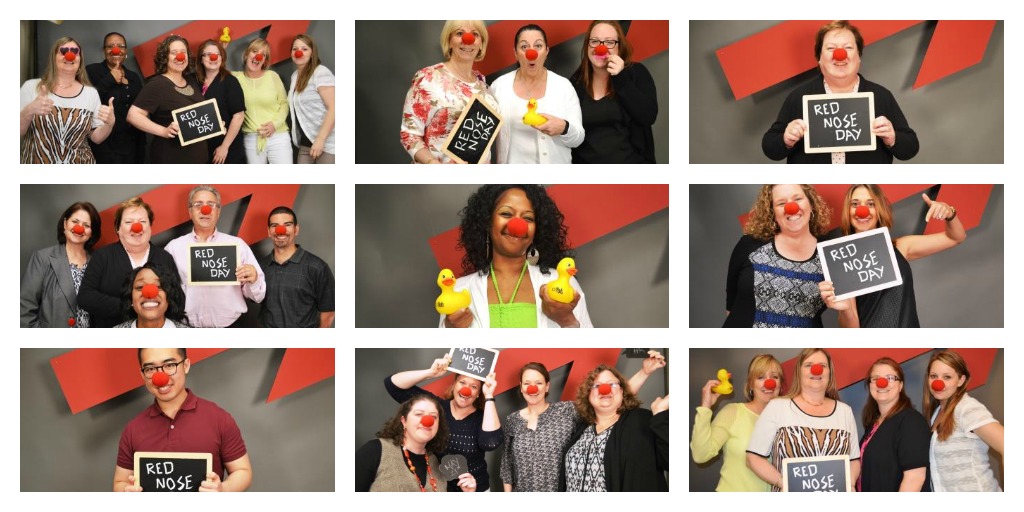7 Tips to Streamline the Hiring Process for Data-Driven Positions
Whether you're looking to introduce business analysts, data scientists, business developers, or IT...

 We all think daily but rarely do we question our thought process. We make decisions based on instinct or intuition without applying logical reasoning.
We all think daily but rarely do we question our thought process. We make decisions based on instinct or intuition without applying logical reasoning.
In a lot of situations, this is fine. Deciding how to spend your weekend, for example, requires little to no objective analysis. In the workplace, however, decisions carry far greater weight and require a more considered approach.
This is where critical thinking comes into play.
Critical thinking is the act of viewing a situation or problem from every conceivable angle – using multiple sources of information, considering the validity of facts and supporting evidence, and evaluating options and outcomes – all in an attempt to find the best possible solution.
When we think critically, we put our feelings and preferences aside and apply a rational, systematic process.
Employers highly seek candidates with strong decision-making skills, not just for roles at a managerial level. Every employee will face a challenging situation at some point, and in doing so, will need to act in the best interests of the stakeholders involved.
By improving your critical thinking skills, you’ll form your own ideas based on evidence, take on board the opinions of those around you, and engage in constructive debate on potential resolutions.
In short, you’ll be a valuable team member, able to assist in achieving business goals and driving your career forward in the process.
It’s not just decision-making, either. Many of the habits demonstrated by highly successful employees stem from critical thinking, like creativity, innovation and self-improvement.
The skill of critical thinking involves multiple skills applied collectively.
While not an exhaustive list, key critical thinking skills include:
Employers may test you on some of these skills during the recruitment process, using aptitude tests to assess your natural capabilities.
So, now we know the benefits of critical thinking and the skills involved, let’s look at how to apply them in practice.
Every scenario is unique, but when faced with a challenging situation, apply the following steps:
Critical thinking is not a skill you learn once. It’s something that can, and should, be continually nurtured to help you become a more effective decision-maker.
Ask Questions
Obtaining clarity is key to critical thinking, and questions are key to obtaining clarity. It’s easy for things to be overlooked, miscommunicated or misinterpreted, so make it a habit to ascertain certainty.
The questions you ask can be directed inward or toward others. In the latter case, you may ask someone to repeat themselves to ensure you’ve clearly understood or follow up for more detail.
When your questions are directed inward, ask yourself what you’re trying to achieve, what you already know, how you know it, and how you can expand your knowledge to support your goal.
Develop Self Awareness
Our own beliefs and values largely influence our decisions – and we’re typically drawn toward information that supports our point of view. This is counterproductive to critical thinking.
Practice self-reflection to better understand how and why you process information in a certain way and how this impacts your judgment.
The more familiar you are with your own biases, the more you can work to balance them out.
Question Assumptions
Never take things at face value. Just because something is widely assumed to be true doesn’t mean that it is.
The most effective critical thinkers always look beyond presumption, often breaking new ground in the process.
So, next time you hear the phrase ‘because it is’ or something to that effect, make a point of asking ‘why’ and exploring alternatives.
Seek Out the Opinion of Others
There’s been an emphasis on diversity in the workplace in recent years, and with good reason.
When people from different backgrounds collaborate, they all bring their unique perspectives, experience and understanding. This leads to constructive debate and more widely informed decisions.
The same applies to critical thinking. When you engage with a wide range of people, you broaden your take on a problem, and, as a result, your approach to the solution becomes more objective.
Learn from Experience
When we reflect on the past, we better understand what may happen in the future. Essentially, we gain a level of foresight.
This is highly valuable since critical thinking isn’t so much about the here and now but the future implications of our choices.
With foresight, you can better judge how your decisions will be received and how they’ll affect other people and processes, so periodically look back at your experience to guide your critical thinking.
Be an Active Listener
This is particularly pertinent in the workplace. There’s a difference between hearing what you’re told and actively listening.
Active listening involves close attention to detail, understanding context and empathy – and it helps you consider things from different perspectives.
You can also pick up a lot by listening to what’s going on around you. You don’t have to be involved in a conversation to learn from it, and as long as it’s not private, paying attention to debate among colleagues can open your eyes to new ideas and opinions.
Critical thinking and decision-making are core skills employers increasingly look for in talent acquisition and development.
Those who possess these skills make for strong leaders, so developing them is highly beneficial for career progression.
You should also consider them useful for day-to-day life.
In an age of information overload and fake news, critical thinking skills will help you view the world objectively and make well-informed life choices.
About the Author: Jen Morris: Jen is a freelance writer with extensive experience across multiple sectors, including recruitment, eCommerce, marketing and events. With a background in journalism, Jen uses effective writing techniques to educate, engage and entertain readers on her client's behalf, driving brand exposure with cleverly crafted content.

Whether you're looking to introduce business analysts, data scientists, business developers, or IT...
November 09, 2022

Last night marked the first ever Red Nose televised event here in the US. With a thirty year...
May 22, 2015

Some businesses spend up to 60 percent of their gross revenue on employee payroll. While this may...
December 09, 2019